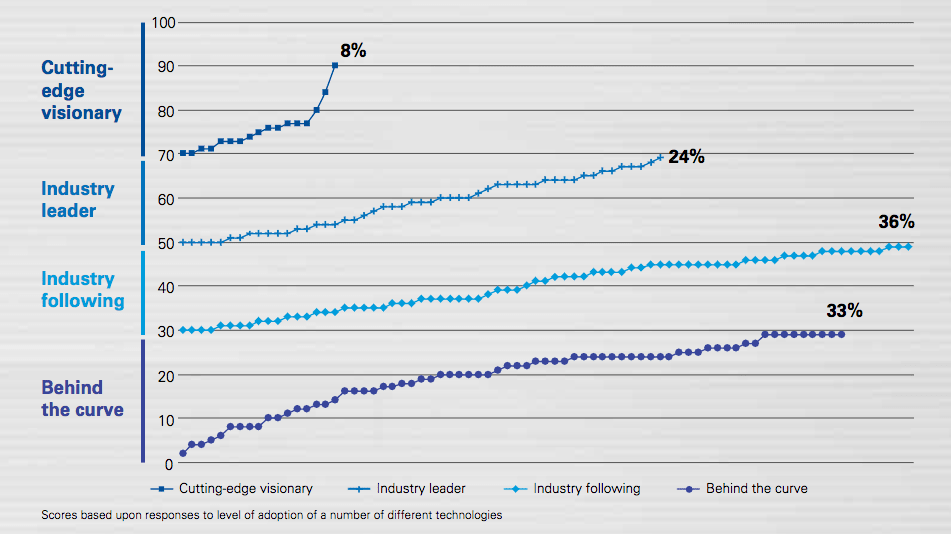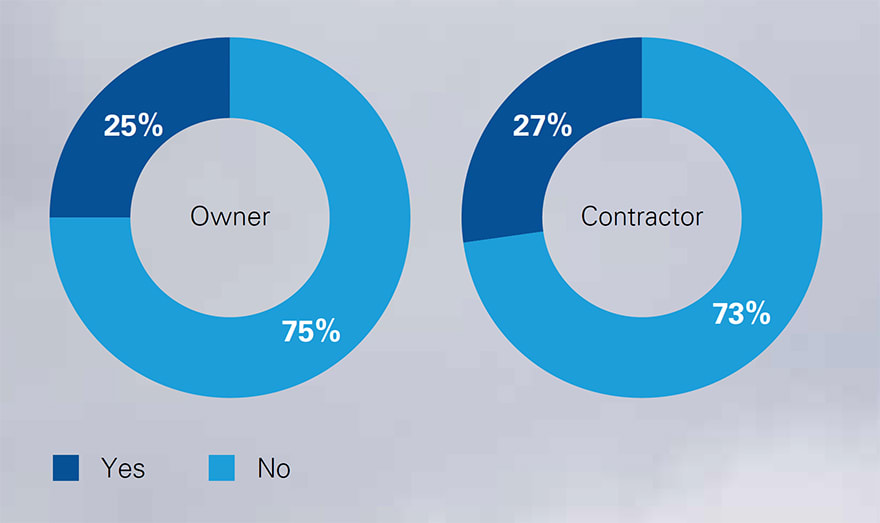Global construction companies are not embracing technological advancements, such as drone aircrafts, robotics, RFID equipment and data analytics, according to a survey conducted by international accountancy firm KPMG.
KPMG’s Global Construction Survey 2016 found that despite a rise in project complexity and associated risks, a mere 8% of respondents can be categorised as “cutting-edge visionaries”. And just over 20% said they were aggressively disrupting their business models.
The survey also found that many companies are struggling to make sense of information in the face of exponentially rising volumes of data. They may have an impressive range of platforms and tools, but most respondents feel they lack the resources and skills to provide useful insights, states the report.
Perhaps surprisingly, almost three-quarters of respondents said that they did not use advanced data analytics for project-related estimation and performance monitoring.
Technology adoption spectrum

Geno Armstrong, international sector leader, engineering & construction for KPMG in the US, was not surprised by the results: “The survey responses reflect the industry’s innate conservatism towards technologies, with most firms content to follow rather than lead.
“Many lack a clear technology strategy, and either adopt it in a piecemeal fashion, or not at all. The rapidly evolving infrastructure challenges of the next decade demands that both owners and engineering and construction firms embrace technology more strategically and at a far more rapid pace than in the past,” he continued.
When it comes to mobile technology and platforms, while most use remote monitoring on projects, 19% said they did not use mobile technology at all. Among those who did utilise mobile technology for projects, nearly 40% did not have them linked to an integrated system or broader enterprise-wide project management system.
Can you ‘push one button’ to obtain fully integrated, real-time project data?

The report also made clear that integrated, real-time project reporting is at the moment still a dream rather than a reality, with the majority of executives in the survey stating that their organisations were held back by manual processes and multiple systems. Just 20% had a single, fully integrated project management information system (PMIS) across the enterprise.
70% did not use robotic or automated technology, most of which had no plans to use it in the future. In addition to traditional cost and schedule analytics, 65% did not use data analytics for any other aspects of their organizations’ projects.
“Integrated, real-time project reporting is still a myth, rather than a reality for most,” said Armstrong. “That’s largely because firms tend to use multiple software platforms that are manually monitored and disconnected, which severely compromises their effectiveness.”
Despite the low percentages of adoption, Armstrong believes that embracing technology is vital to improving the efficiency of construction: “Projects are becoming bigger, bolder and more complex – and with complexity comes risk,” he said. “Innovations like remote monitoring, automation and visualization have enormous potential to speed up project progress, improve accuracy and safety.”
The full report is available here – https://assets.kpmg.com/content/dam/kpmg/xx/pdf/2016/09/global-construction-survey-2016.pdf
Main image: Dashark/Dreamstime.com
The rapidly evolving infrastructure challenges of the next decade demands that both owners and engineering and construction firms embrace technology more strategically and at a far more rapid pace than in the past.– Geno Armstrong, KPMG
Comments
Comments are closed.












Global construction companies are not embracing technological advancements, such as drone aircrafts, robotics, RFID equipment and data analytics, according to a survey conducted by international accountancy firm KPMG.
Maybe they are concerned about the speeding up of unemployment as more drones and robotics replace the human workforce.